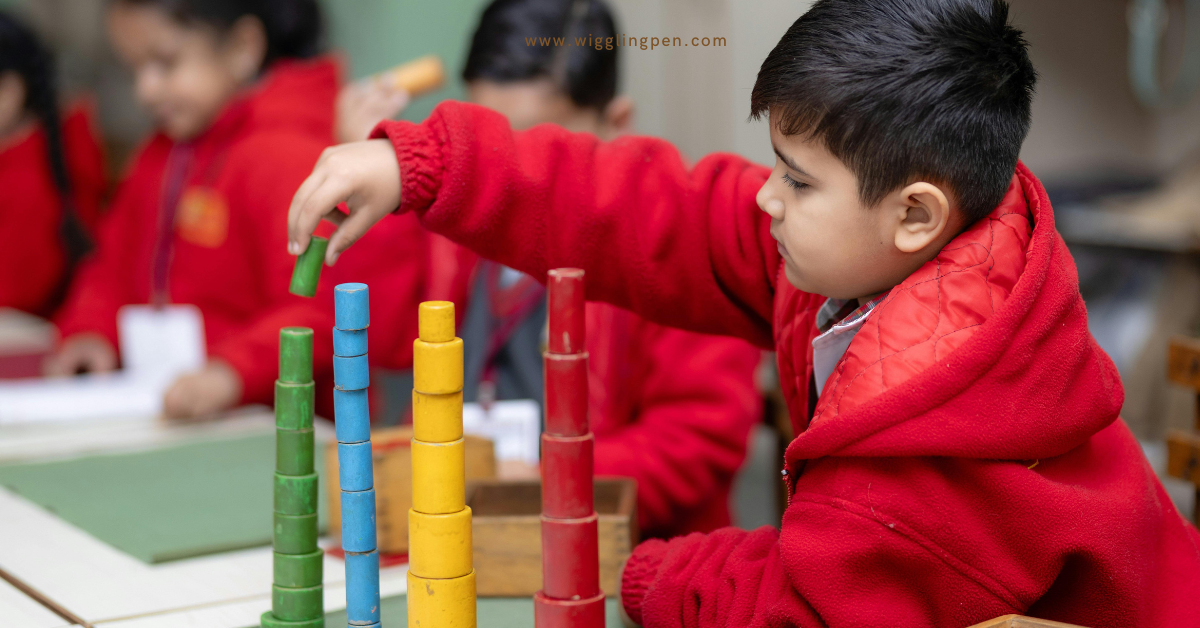
Reading is not just a school skill. It’s a life skill. In a world flooded with distractions, learning to read books helps kids slow down, focus, and process information with depth. Books expand their minds, expose them to new ideas, and allow them to make sense of a world that’s increasingly complex.
The act of reading strengthens the brain. It stimulates mental activity, develops language, improves memory, and builds critical thinking. Reading also increases emotional intelligence by allowing kids to walk in someone else’s shoes—literally living the experiences of characters from all walks of life.
When a child reads books regularly, they learn more than what’s on the page. They learn how to express themselves, how to analyze situations, and how to approach life with empathy and creativity.
How Kids Benefit from Reading Books
Kids who read books from a young age build a stronger foundation in nearly every area of development. Here’s how:
- Better vocabulary: They naturally absorb new words and phrases without memorizing them.
- Improved focus: Books demand attention and build stamina for deep work.
- Emotional development: Stories often mirror real-life dilemmas, helping kids understand emotions better.
- Imagination boost: Books open doors to worlds that don’t exist in reality. That sparks innovation.
- Stronger academic performance: Kids who read regularly tend to do better across subjects—not just in English.
- Confidence: A child who can read and understand independently starts to trust their own thoughts.
The earlier kids read books, the more naturally these benefits unfold. Even 15 minutes a day can make a huge difference.
Why Parents Should Encourage Reading
You can’t outsource this part to school or tuition classes. Parents are a child’s first teacher, and what they model matters. If kids grow up seeing books in the house, watching their parents read, and having easy access to stories—they associate reading with comfort, fun, and bonding.
Encouraging your child to read books helps them develop a love for learning, not just academic success. It gives them tools to cope with stress, escape unhealthy screen time, and build self-awareness. You don’t have to be a reader yourself. You just have to show up and care.
Support their curiosity. Ask what they’re reading. Give them space to explore genres. Be the cheerleader, not the coach. When parents show genuine interest in books, kids follow suit.
Need help choosing the right titles? Here’s a great place to start—check out the Ultimate List of 60 Best Books for Teens for inspiration. Now, Let’s Get to the Core.
10 Best Ways To Teach Your Kids To Read Books
1. Begin Early, Even Before They Speak
You don’t have to wait till they know their ABCs. Start with holding them close and reading simple, colorful books—even if they can’t understand the words. What they’ll understand is your voice, your expressions, and the comfort of that moment.
That’s how the love for books begins—not with alphabets, but with connection. Those five minutes a day on your lap can do more than a classroom lesson ever will.
2. Let Them See You Read
Kids don’t always listen to what we say, but they watch everything we do. If you want your child to read books, let them see you doing it too—not just scrolling through your phone or binge-watching a show.
Even if it’s just ten minutes you also read books it could be anything a magazine, a cookbook, or your own novel, it sends a quiet message: reading matters in this house.

3. Let Them Pick What They Like
You might want them to read award-winning classics, but they may be drawn to comics or books full of silly jokes. Let them. The goal is to build the habit first, taste will follow. When they feel like they have a say in what they’re reading, it no longer feels like homework. It feels like freedom.
4. Keep Books Fun, Not Forced
The minute reading becomes a rule—“Read books for 30 minutes or no screen time”—they’ll start dreading it. Reading books should feel like an adventure, not a punishment. Read aloud with silly voices, ask them what they think will happen next, laugh with them at the funny bits. Let reading be a happy place, not a daily checklist.
5. Create a Little Corner Just for Books
You don’t need a fancy library. Even a small corner with a soft cushion, a basket of books, and some fairy lights can feel like magic to a child. When there’s a cozy space that’s just for reading, it becomes their little escape—a spot they go to when they love to read books and want some quiet joy.
6. Bring Stories to Life with Your Voice
If they’re not ready to read on their own yet, don’t stress. Sit together, play an audiobook, or read aloud to them. Listen in the car. Let them close their eyes and imagine the scenes. Sometimes, stories heard stay longer than stories read. The rhythm of storytelling will stay with them, long after the book is over.
7. Turn Stories Into Real-Life Fun
If your child reads a story about a detective, play a clue-hunting game at home. If the book is about animals, spend the afternoon drawing them. Reading doesn’t have to end on the last page. It can spill over into play, conversation, even snack time.
When books come alive like this, they become part of your child’s real world—not just part of their school bag.
Also read: Tips for writing kids book
8. Make Library Visits a Tradition
There’s something magical about shelves full of books which encourages your child to read books even smaller kids . Let your child wander around, flip through pages, and discover what pulls them in.
Make it a little ritual—maybe a Saturday morning trip to the library or bookstore. Not to buy or borrow anything fancy. Just to explore. Let it be their time.
9. Use Screens to Nudge Them Toward Books
If your child loves screens, use them wisely. There are wonderful reading apps that offer digital books and interactive stories. And yes—ebooks still count as reading. If it gets them excited to explore new stories, let it be a stepping stone, not a guilty compromise. The format doesn’t matter—what matters is that they read books in a way that clicks with them.
10. Celebrate Their Reading Journey
Finished a book? Clap for them. Started reading something without being told? Smile and say how proud you are. Reading doesn’t need medals or certificates. But it does need little moments of celebration—maybe a star on the fridge, a weekend book treat, or just a big hug with, “I love how you’re enjoying books!”
These are the things they remember. These are the things that make them come back for more and happy to read books.
One Last Thought
Books don’t just teach kids to read. They teach them how to imagine, how to feel, how to understand people, and how to trust their own voice. When you help your child build a bond with books, you’re giving them something precious: a safe space they can return to, no matter what the world throws at them.
So start with just one book, one moment, one page. If you’re not sure what to pick, I’ve found this Ultimate List of 60 Best Books for Teens really helpful—it has everything from fiction to fantasy, perfect for all kinds of young readers. Let them read books. You’ll see the magic unfold quietly, beautifully—and in ways even words can’t always explain.
© Ruchie Verma.
Copyright: Unauthorized use and/or duplication of this material without express and written permission from this site’s author and/or owner is strictly prohibited.







